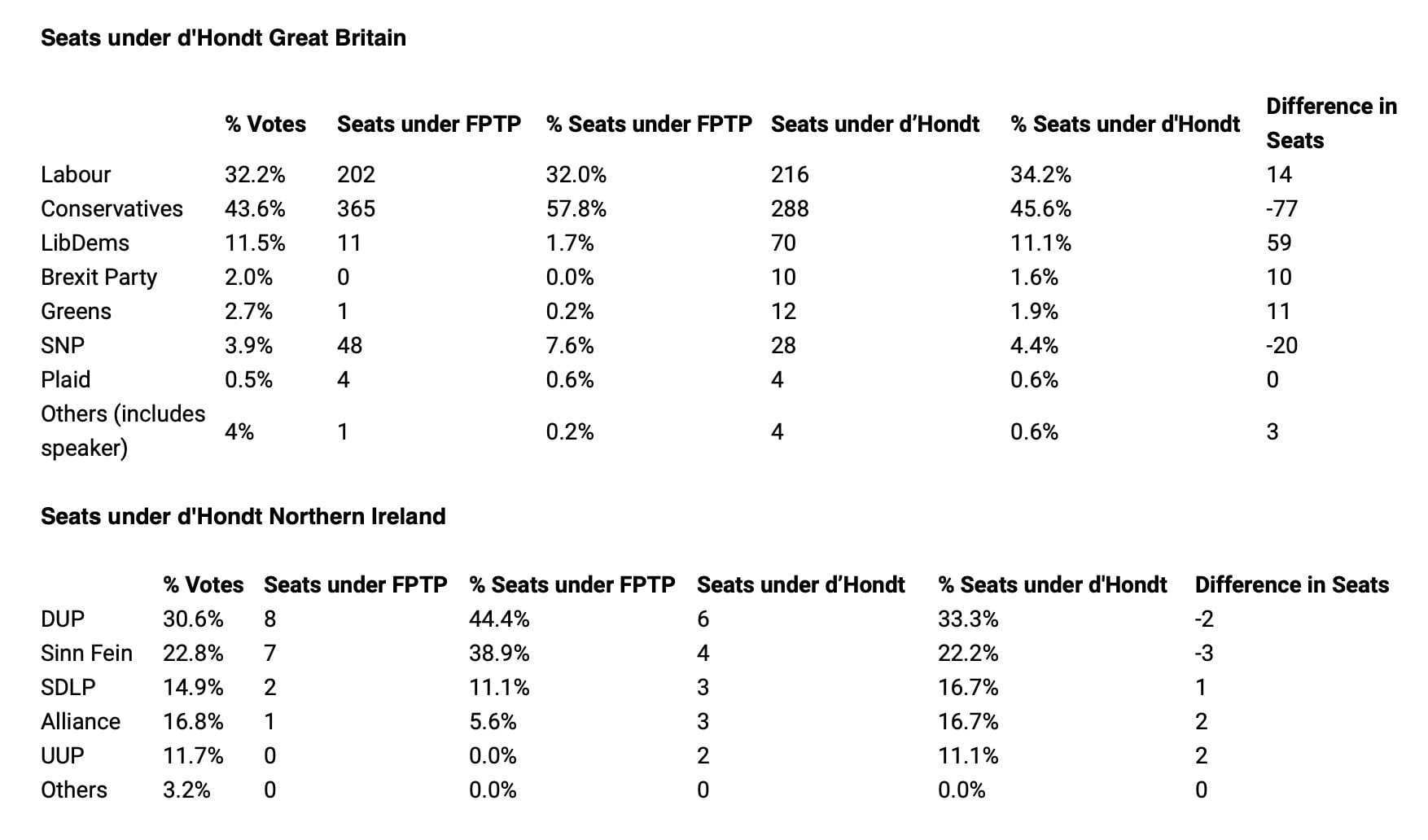Sue Pertwee-Tyr
Accuphase all the way down
As somebody mentioned upthread, at least that gets all the closet UKIPpers out of the Tory party and into the open where we can see them. And they’d be effectively neutralised by an alliance of Greens and LibDems, with or without the SNP.Not arguing one way or the other but as a data point, in the 2015 election, Ukip would have been third largest party under PR
PR vs FPTP
Conservative 240 vs 331
Labour 198 vs 232
UKIP 82 vs 1
LD 51 vs 8
SNP 31 vs 56
Green 25 vs 1


